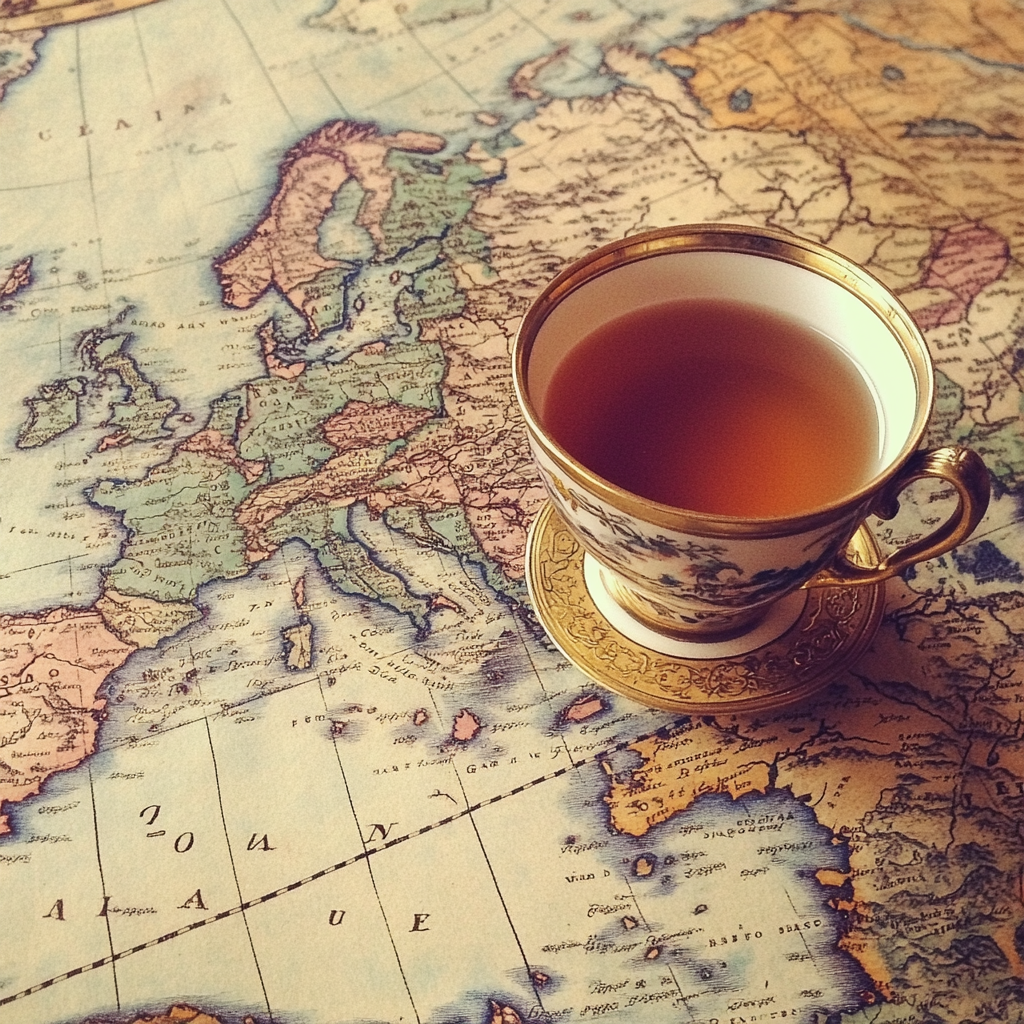
Tea Through the Centuries: A Journey Through Time
Tea is a millennia-old beverage that has played a central role in the history and civilization of many countries around the world. Originating from China, tea was introduced to other Asian countries, such as Japan and India, before spreading to Europe and other parts of the world. In this article, we will explore the history of tea and its impact on cultures and civilizations throughout the centuries.
Tea in China
The first written mention of tea in China dates back to the 3rd century AD. According to legend, Emperor Shen Nong accidentally discovered the medicinal properties of the tea plant when a leaf fell into his hot water. The Chinese began to drink tea for its medicinal and spiritual virtues. Tea quickly became a popular beverage, and its cultivation spread throughout the country. During the Tang dynasty (618-907), tea became the drink of choice for the nobility and intellectuals.
During the Song dynasty (960-1279), tea culture became professionalized and tea became a full-fledged industry. The Chinese developed new varieties of tea and began using special utensils to prepare and serve tea. Tea ceremonies became an integral part of Chinese culture.
Tea in Japan
Tea arrived in Japan in the 9th century, brought by Buddhist monks who had studied in China. Japan quickly adopted tea culture, developing its own tea ceremony called cha-no-yu. The Japanese also created new varieties of tea, such as matcha, which is used in the tea ceremony.
The Japanese tea ceremony is a practice that celebrates the simplicity and beauty of nature. It is based on the principle of harmony between the guests, the host, and nature. The tea ceremony is an art of living that values simplicity, harmony, purity, and respect.

Tea in India
Tea was introduced to India by the British in the 19th century. The British planted tea trees in India to compete with the Chinese tea market. Today, India is one of the largest tea producers in the world, with tea plantations in the regions of Darjeeling, Assam, and Nilgiri.
The history of tea in India is linked to British culture, which developed the practice of afternoon tea. Afternoon tea is a tradition that involves having a cup of tea accompanied by scones, sandwiches, and pastries in the afternoon. This tradition has become a symbol of British culture and is still practiced today.
Tea in Europe
Tea arrived in Europe in the 17th century thanks to commercial migrations with Asia. The Portuguese were the first to import tea to Europe, followed by the Dutch and the British. Tea quickly became a drink of choice for the European nobility, who began to use porcelain tea sets to serve and drink tea.
In the 18th century, tea became a popular drink throughout Europe, and tea shops opened in major European cities. The tea trade became a key element of the European economy, and Great Britain eventually established a monopoly on the tea trade in Asia.

The impact of tea on cultures and civilizations
Tea has had a profound impact on cultures and civilizations throughout the centuries. In China, tea has become a central element of Chinese culture, and the tea ceremony is a practice that celebrates the beauty and simplicity of nature. In Japan, the tea ceremony is a way of life that values simplicity, harmony, purity, and respect.
In India, tea has become a key element of British culture, and the practice of afternoon tea is still observed today. Tea has also had an impact on the global economy, becoming a key commodity in international trade.
Conclusion
In conclusion, the history of tea is a story of discovery, trade, and culture. Tea has played a central role in the culture and civilization of many countries around the world, and it continues to be a popular beverage today. The tea ceremony in China and Japan, as well as afternoon tea in India and Great Britain, are examples of how tea has influenced cultures and traditions over the centuries. Thus, tea is a symbol of the history, culture, and civilization of humanity, and it will likely continue to play an important role in the years to come.
